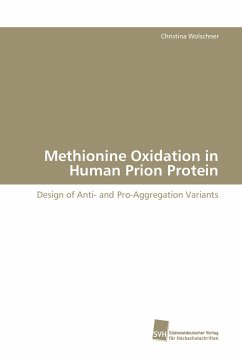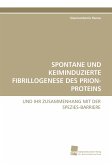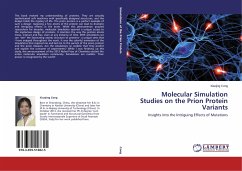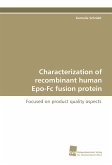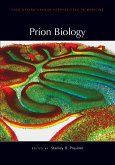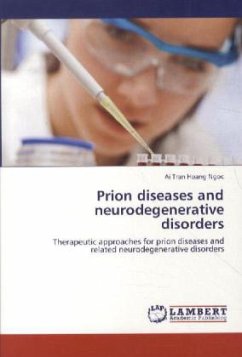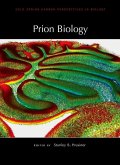The aim of this thesis was to examine the pathological relevance of the oxidation state of methionine (Met) side chains in neurodegenerative disorders such as sporadic prion disease. First for better understanding the oxidative event, the effect and consequences of Met oxidation in the recombinant human cellular prion protein (rhPrPC23-231) were studied. Second the incorporation of stable Met analogs, norleucine and methoxinine, in rhPrPC23-231 -mimicking the reduced and oxidized state of Met, respectively - was performed. The results strongly indicate a correlation of the secondary structure conversion in rhPrPC with the oxidative state of the Met residues. In the future, this approach will certainly be useful for studying diseases, which arise from protein misfolding due to oxidative stress.
Bitte wählen Sie Ihr Anliegen aus.
Rechnungen
Retourenschein anfordern
Bestellstatus
Storno

